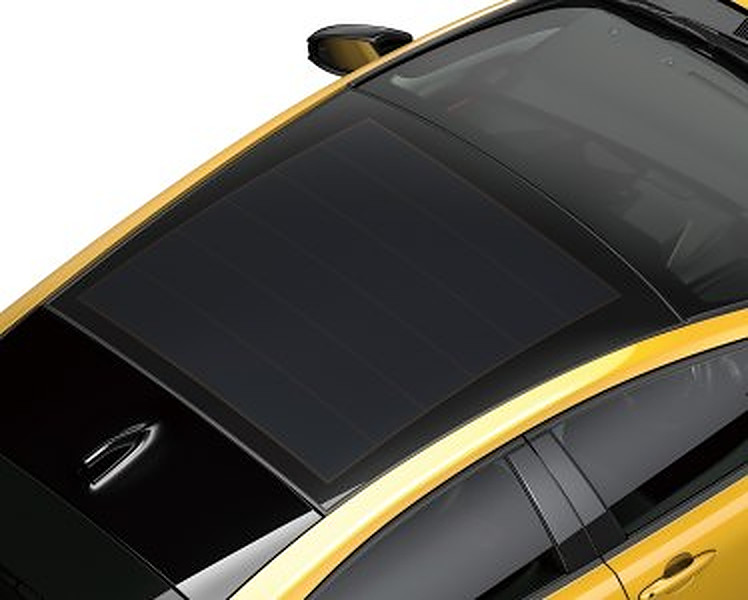From pv magazine Global
Japanese chemical company and solar module manufacturer Kaneka announced that Japan-based car and battery manufacturer Toyota Motor Corporation has selected its 180cm², 26.63%-efficient crystalline silicon solar cells featuring heterojunction and back-contact technology for deployment in one of its electric vehicles.
Kaneka said the cells will be utilized, in particular, in the roof glass of Toyota’s Prius PHEV car. “Our solar cells were selected by Toyota for use in an automobile following their use on Toyota bZ4X due to recognition of its curved surface design enabling itself to be mounted on a car body in addition to the high conversion efficiency and excellent exterior design of our proprietary technology,” Kaneka said in a statement, noting that the back-contact design with no wiring on the surface has an appearance similar to vehicle roof glass.
Kaneka’s solar cell has been for years recognized as the most efficient crystalline silicon PV device developed at both the industry and research levels. In November, however, Chinese manufacturer Longi announced it crossed this threshold by achieving a power conversion efficiency of 26.81% for an unspecified heterojunction (HJT) solar cell, based on a full-size silicon wafer, in mass production.
The Japanese manufacturer started supplying bifacial heterojunction solar modules based on its cell technology in 2019.
In its latest financial report published in February, the company said it was ready to start the operation of an additional production line for heterojunction PV panels during this fiscal year to respond to the strong demand. “We plan to begin full–scale delivery of in–vehicle PV this spring,” it also stated.
This content is protected by copyright and may not be reused. If you want to cooperate with us and would like to reuse some of our content, please contact: editors@pv-magazine.com.









1 comment
By submitting this form you agree to pv magazine using your data for the purposes of publishing your comment.
Your personal data will only be disclosed or otherwise transmitted to third parties for the purposes of spam filtering or if this is necessary for technical maintenance of the website. Any other transfer to third parties will not take place unless this is justified on the basis of applicable data protection regulations or if pv magazine is legally obliged to do so.
You may revoke this consent at any time with effect for the future, in which case your personal data will be deleted immediately. Otherwise, your data will be deleted if pv magazine has processed your request or the purpose of data storage is fulfilled.
Further information on data privacy can be found in our Data Protection Policy.